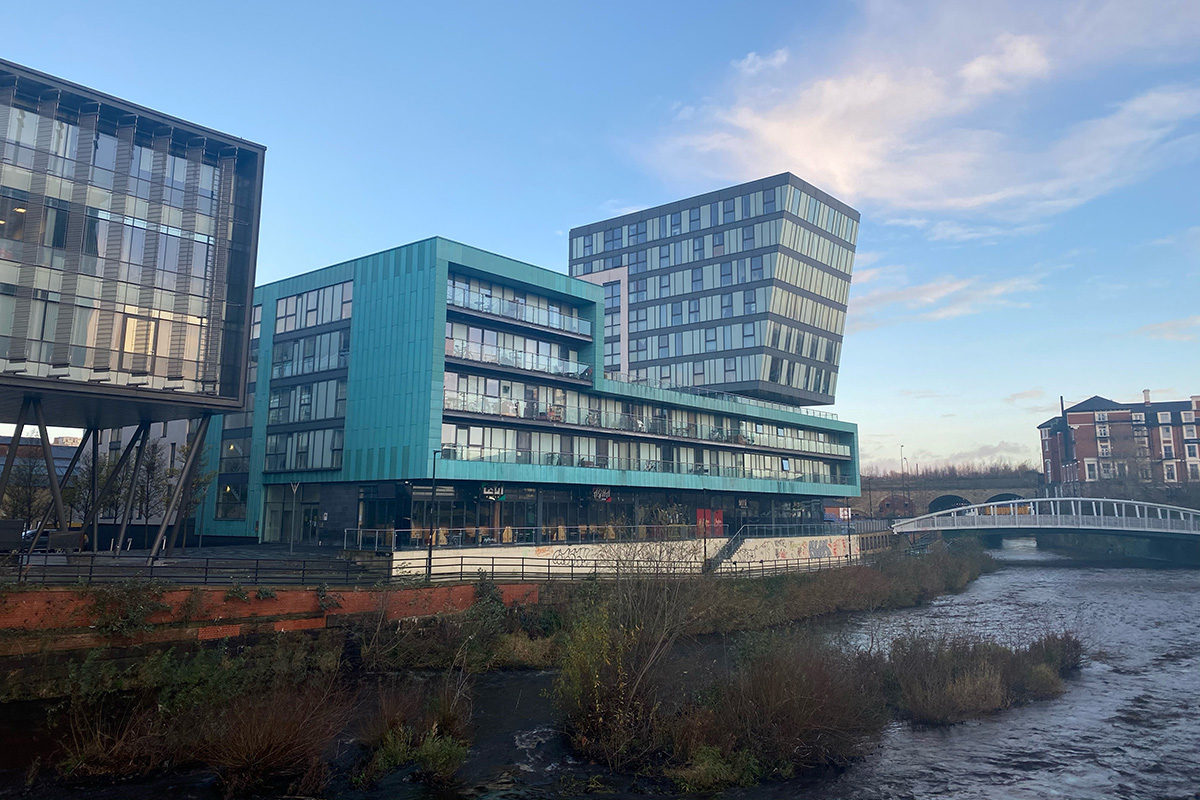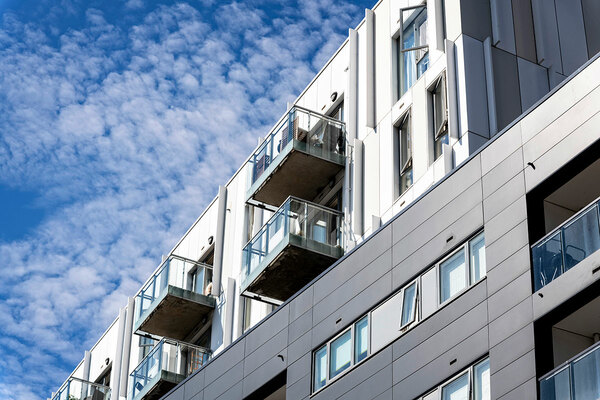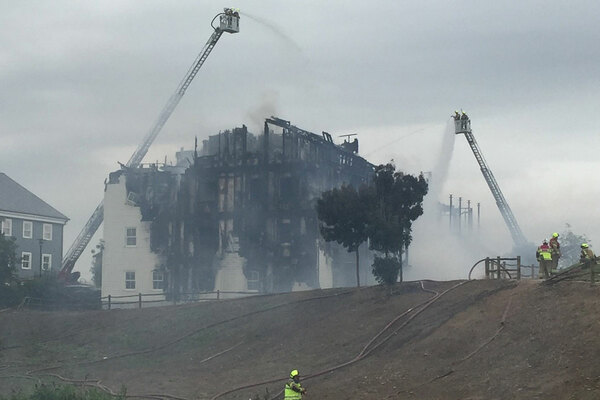You are viewing 1 of your 1 free articles

Jenni Garratt is a leaseholder at Wicker Riverside, and co-lead of the End Our Cladding Scandal campaign
The government must finally protect leaseholders from the costs of the building safety crisis
Michael Gove has admitted that flawed government guidance contributed to the cladding crisis. It’s a welcome admission, but it should be followed by the state taking our place in the queue for the bill, writes Jenni Garratt
The second half of last year was beset with political uncertainty, but for those of us still trapped in the building safety crisis, it was particularly extreme.
As housing minister replaced housing minister, we were left wondering how long we would wait for a solution to the problem that has defined the past few years of our lives.
Like people across the country, we face a cost of living crisis, soaring energy bills and sharp mortgage rate increases, but also the longstanding issue of exorbitant insurance premiums for flat buildings.
We have seen our savings and building reserves drained in the five-and-a-half years since the catastrophic events at Grenfell Tower, with still no clear end in sight.
We welcomed housing secretary Michael Gove’s reset to building safety, first announced in parliament over a year ago, and we have appreciated the ongoing engagement with his team and officials in the intervening period.
We also welcome his long overdue admission that flawed government guidance helped create the crisis the country faces today.
However, we are yet to see firm results delivered at pace following the introduction of what is now known as ‘the waterfall’ approach to building safety.
The theory is that liability for our building’s flaws will flow down the chain of potentially responsible parties – developers and then building owners – to ensure that they are paid for before they reach our doors.
On 9 January, Jeremy Pocklington, permanent secretary at the Department for Levelling Up, Housing and Communities, gave evidence to the select committee that scrutinises the department’s work.
When Mr Pocklington was asked what would happen when the waterfall failed to protect leaseholders, the response was that the department was there would then be a “vanishingly small” tail where leaseholders would still have to pay for remediation costs.
Even a small number would be unacceptable, but there are legitimate fears that it could prove to be many more.
We say that if the government truly has faith in its building safety approach, then it should take the place of leaseholders in the waterfall, as we previously suggested a year ago. After all, if it really is a “vanishingly small” number, it won’t cost them very much.
There is also a serious problem that too many ordinary people have been deliberately ruled out of the government’s leaseholder protections.
“We have always said that this is a collective failure of state and industry. We have always said that leaseholders are the only innocent parties in this mess”
As we have repeatedly stated, our firm view remains that all leaseholders are equally blameless. It remains desperately unfair to rule anyone out of the leaseholder protections.
Yet, we now have the awful label of ‘non-qualifying leaseholder’ for those who have been arbitrarily ruled out of help.
This includes those in buildings short than 11 metres, small private landlords, often pensioners, who have invested their money in flats and ‘enfranchised’ buildings, where the freehold is owned by residents.
As a starting point, at the very least, as we are all innocent victims of the building safety crisis – a recognised collective state and industry failure – it would be morally decent to treat all leaseholders equally.
In September 2020, we called for the government to fund all required works up front and to recover these costs from the wide range of parties that played a part in causing this crisis, whether through taxation on freeholders, developers and others, a levy, or actively recovering funds from suppliers of unsafe products, approved inspectors and other parties.
We have always said that this is a collective failure of state and industry. We have always said that leaseholders are the only innocent parties in this mess. We have always said that there are several potential solutions, but it takes political will to push one or more of these through.
For example, the waterfall currently only includes developers and building owners ahead of leaseholders. Where are the sanctions for the wide range of relevant not-so-innocent parties, such as product suppliers, contractors and others?
Mr Gove has shown the political will to hold developers and building owners to account, but the government has stopped short of ensuring that all leaseholders are fully protected or that many responsible parties pay their dues.
In response to the select committee’s June 2020 report, Cladding: progress of remediation, the government explicitly stated that it was “clear and unwavering in its view that it is unacceptable for leaseholders to have to worry about the cost of fixing historic safety defects in their buildings that they didn’t cause”.
However, too many of us remain on the hook for costs, whether for remediation, interim measures or extortionate building insurance.
“If the government has faith in the leaseholder protections, it can use its weight to ensure that funds are recovered from the guilty parties, which, let’s be clear, includes the government itself”
Many vulnerable leaseholders, including shared owners, face the very real prospect of losing their home because they can no longer cover the costs forced upon them. Others are forced to sell to cash buyers and will face life-changing debt as a result.
There are also the social housing tenants who may not face huge service charges, but still face the terrifying reality of living in a building with fire defects and have even less freedom to move. Ultimately, if social landlords end up paying for the remediation of the blocks, it will be social housing rents that pick up the bill. The responsible parties should be made to pay for these blocks as well.
We remember that then-chancellor and now prime minister Rishi Sunak dismissively said that beyond the existing money put up by the government, remediation would come from “regular sources of funding”. In the broken world of leasehold law, that means us. But that cannot be allowed to happen.
If the government has faith in the leaseholder protections, it can use its weight to ensure that funds are recovered from the guilty parties, which, let’s be clear, includes the government itself.
The case for funding all required external and internal works up front and recovering costs has only been made stronger in recent years. Without this, we will still be caught up in the ongoing buck-passing and buildings will remain unsafe for years to come.
We may have moved closer to an end to this living nightmare but too many of us are still trapped.
We thank all the politicians, whether MPs, peers or councillors across the political spectrum, who have recognised the clear social injustice of the building safety crisis.
With local elections around the corner, and a general election soon to follow, we know that resolving this crisis is a clear vote-winner for any political party that takes the decision to fully protect all leaseholders.
The onus is now on the Conservatives, Labour, the Liberal Democrats and others to prove to us that they will ensure that the only blameless parties in this crisis are properly protected and this scandal can be brought to an end.
Jenni Garratt, leaseholder, Wicker Riverside; and co-lead, End Our Cladding Scandal campaign
Sign up for our fire safety newsletter
Already have an account? Click here to manage your newsletters












